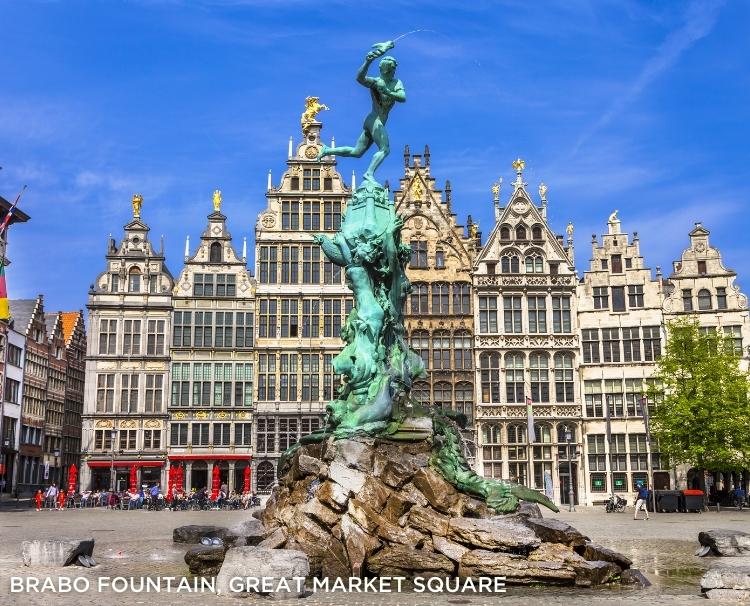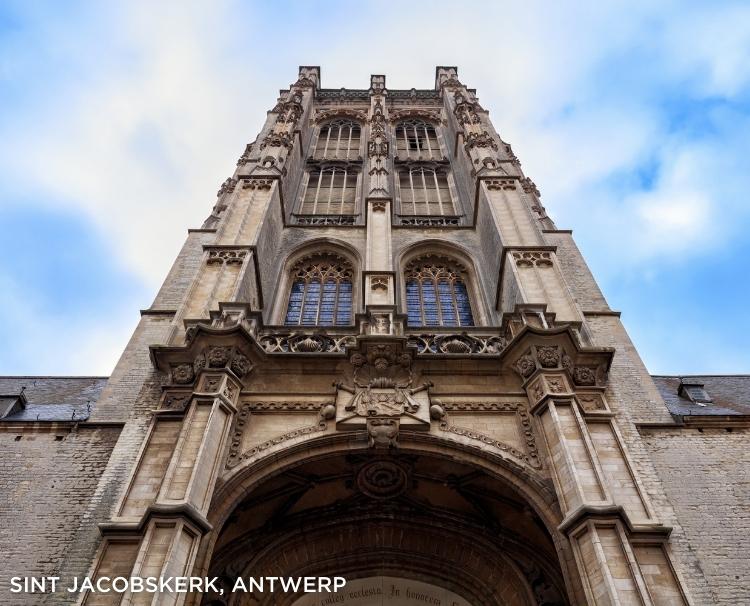Join AmaWaterways for a guided bike tour through the streets and sights of this bustling Flemish city. Along the way, we’ll see some of Antwerp’s most impressive historical sites in a region already rich with history.
The Giant of Antwerp

According to local legend, the city got its name from Druon Antigoon, a mythical giant that lived near the Scheldt River. The giant extracted a toll from passing boatman, severing the hands of those who refused to pay. Antwerpen (Dutch for Antwerp) stems from handwerpen, meaning “hand throwing,” referencing the hands that were thrown into the river. Antigoon tormented the waterway until the young hero, Silvius Brabo, defeated the giant in battle, removing his hand and sinking it in the Scheldt River. Learn about local legends while on our included bike tour through this incredible city.
Riches and Hardships
Antwerp’s large seaport (the second largest in Europe and in the top 20 world-wide) made it a major financial center in its golden age heyday in the early 16th century. Already the sugar capital of Europe, Antwerp enjoyed a booming banking business and was known for its world-class art, culture and policies of religious tolerance. However, beginning in the mid-1500s, wars and religious revolutions (particularly the Reformation) took their toll on the city. Centuries later, Napoleon helped to revive interest in the city’s port (and the dock named after the general still remains).
A Haven for Architecture Enthusiasts
Now a thriving and vibrant city once again (the second largest in Belgium), Antwerp’s magnificent history (and periods of splendor) is on full display in buildings with varied architectural styles.

Located in the Berchem neighborhood of Antwerp, a majority of the townhouses that line Cogels Osylei are in the magnificent Art Nouveau style. Fans of architecture and design will delight while biking past the many homes lining this street, taking in a diverse range of popular fin-de-siècle styles, such as Gothic Revival, Neo-Renaissance, Neoclassical and more.
On nearby Waterloostraat, houses commemorate the 1815 Battle of Waterloo. Cycle past the iconic Waterloo House (Waterloostraat 11), decorated with elaborate glazed ceramic panels depicting Napoleon and the Duke of Wellington.
The Sint Jacobskerk, often referred to as St. James’ Church, is a 15th century Gothic Church which, because of its many years of construction, was designed with a Baroque interior. It is the final resting place of Flemish master painter Peter Paul Rubens, known for his iconic religious and mythological paintings —and even houses original works by the artist himself, including the altarpiece that stands in Rubens’ own burial chapel.
Cycling is the perfect way to see sights like these, giving an authentic experience of what daily life is like for those that live in this stunning city!
Pedal your way through Belgium and the Netherlands when sailing aboard our Best of Holland & Belgium and Tulip Time sailings.